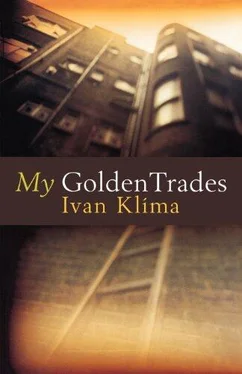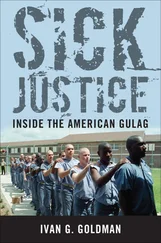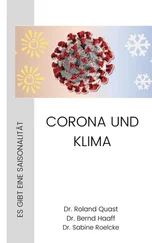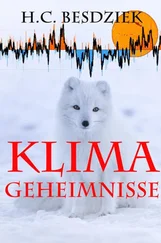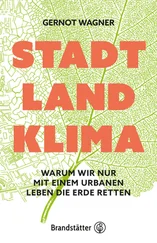Ivan Klima - My Golden Trades
Здесь есть возможность читать онлайн «Ivan Klima - My Golden Trades» весь текст электронной книги совершенно бесплатно (целиком полную версию без сокращений). В некоторых случаях можно слушать аудио, скачать через торрент в формате fb2 и присутствует краткое содержание. Год выпуска: 1998, Издательство: Granta UK, Жанр: Современная проза, на английском языке. Описание произведения, (предисловие) а так же отзывы посетителей доступны на портале библиотеки ЛибКат.
- Название:My Golden Trades
- Автор:
- Издательство:Granta UK
- Жанр:
- Год:1998
- ISBN:нет данных
- Рейтинг книги:4 / 5. Голосов: 1
-
Избранное:Добавить в избранное
- Отзывы:
-
Ваша оценка:
- 80
- 1
- 2
- 3
- 4
- 5
My Golden Trades: краткое содержание, описание и аннотация
Предлагаем к чтению аннотацию, описание, краткое содержание или предисловие (зависит от того, что написал сам автор книги «My Golden Trades»). Если вы не нашли необходимую информацию о книге — напишите в комментариях, мы постараемся отыскать её.
My Golden Trades — читать онлайн бесплатно полную книгу (весь текст) целиком
Ниже представлен текст книги, разбитый по страницам. Система сохранения места последней прочитанной страницы, позволяет с удобством читать онлайн бесплатно книгу «My Golden Trades», без необходимости каждый раз заново искать на чём Вы остановились. Поставьте закладку, и сможете в любой момент перейти на страницу, на которой закончили чтение.
Интервал:
Закладка:
He never mentioned his wife by name. Perhaps he was trying to preserve his privacy and her mystery.
We were on top of the hill by the water tower, looking for our lost triangulation point again.
By precise calculations, the surveyor had determined that
the point should be the same distance from the edge of the concrete slabs, but slightly above the place we'd first begun to dig. In fact, all we needed to do was lengthen our original hole.
I expressed admiration for a science that, by measuring from a distant church tower, could accurately locate any point on the earth's surface. But I still didn't believe we could find the missing stone.
The surveyor started digging down towards the hypothetical point. I shovelled the loose dirt out of the hole.
'They must have at least left the marker here somewhere,' he said as he doggedly stabbed the ground with the probe.
But they hadn't. All we could do was install a new one. Why wouldn't he do so? I preferred not to ask.
As usual, we returned as it was getting dark. I couldn't tell whether he felt badly about not finding the stone, or whether he was content to be able to report, with some certainty, that the point had been destroyed.
At home, he retired to his three-legged table, turned on his radio and began to work something out. Later he appeared in my room. 'I've just heard an interesting programme,' he announced. 'Have you heard of the "Big Bang"?'
I had.
'So listen to this,' he said excitedly. 'They apparently calculated the volume of the material from which everything else, the whole universe, was made.'
'Is that possible?'
He shrugged his shoulders to indicate that he took no responsibility for the information. 'They claim the volume can be expressed by the figure ten to the minus fifty cubic metres.'
'That's pretty small.'
'Small? It's less than nothing. The diameter of an atom is something on the order of ten to the minus eight cubic metres. Can you imagine that?'
I had to admit that I couldn't.
The Countryside
I BROUGHT the girl who worked in the stationery shop the plastic figurine representing the hideous-looking E.T., but I couldn't give it to her right away. That morning, we set out before the store opened, and by the time we returned she was already gone. I'd have to wait for a rainy day, when we'd stay at home. That wasn't the only thing I'd reserved for a rainy day. There was also a package of books I hoped to read.
But that autumn turned out to be the driest we'd ever had and I saw the girl only once. I'd lost a pencil that morning, and I went into the store to buy a new one.
There were no customers in the shop. The girl was sitting behind the counter reading. 'It's you?' she said, astonished. 'I thought you'd gone. I never see you around.' She stood up and groaned. 'Everything hurts today,' and she ran her hands over both hips. 'Somewhere over by Hlinsko they say they've found this really fantastic healer who works miracles. Have you heard of him?'
She walked unsteadily to the drawer where she kept the pencils, pulled it out and asked me to choose one. 'They say he takes one look at you and he can tell exactly what's wrong. And he cures you with the power that comes from
his fingers and his eyes.'
'That's what they say,' I admitted. I knew the priest in the village where the healer lived.
'Do you think he'd see me?'
'Certainly. He sees everyone.'
'There must be loads of people who want to see him.'
'Sometimes you have to wait all night.'
'They say he even cured people who couldn't walk. Do you believe that?'
'It depends on what was wrong with them,' I said. 'And what about your mother?' I asked. 'Is she still in hospital?'
'She won't be coming home,' she said matter-of-factly. 'I haven't been able to see her for at least two weeks. I'd go there with my little girl, but she's had an ear-ache. And if I go alone, there's nothing to talk about. All she can do is lie there.'
Her voice seemed unsteady. I paid for the pencil, and as I left I caught sight of her through the glass door sitting down, with some difficulty, to read her magazine.
If he is to check all the points in his network, a surveyor must criss-cross the countryside, not omitting a single field, and there is scarcely a village he will not have walked through many times, or at least driven through. Because his points are located on high land and in other prominent places, he must climb hills and church towers. He surveys a landscape bathed in sunlight and submerged in shadow. He sees its delectability and its distress.
One day, on a gentle slope near the Labe River, we were looking for a stone marker in a cornfield. The field was huge and the corn was so high that the surveyor had to jump on the bonnet of his car to scan the field with binoculars. When he saw the tip of the black and white
stake in the distance, he sent me ahead to find it. I held a staff above my head so that he would not lose sight of me, and pushed my way through the thick corn following his shouted directions.
When I reached the stone, I saw that a third of it was sticking out of the ground. It was easy to dig up; the soil here was soft, viscid and black. You could feel the fecundity of Mother Earth in it. We set the stone back in the ground properly and added several shovels of topsoil to fill the hole.
The water will just erode it again,' the surveyor remarked, speaking of the topsoil. 'You can see how much of it was washed away since the last survey.' This, I learned, had taken place seven years ago.
'Growing corn here,' the surveyor added, 'is a crime.'
A greedy farmer, not really a farmer at all, can destroy in a single seven-year period what it took thousands of years to create. And what he destroyed no one could ever restore.
While we were in the middle of the huge field, we were caught by a vehicle spewing dust from a line of nozzles. We couldn't pack our tools and escape in time, and suddenly found ourselves engulfed in a suffocating cloud. Tears streamed down our cheeks and we coughed, gasping for breath.
What would my wife have seen in this slowly dissipating cloud?
Perhaps from a distance it would have reminded her of a snowstorm, the floating clouds of milkweed seed on an Indian summer day, or mist rising from the bottom of a waterfall. But to me, in the middle of it, it was thick with memories of gas attacks and war.
There were fields that we passed every day. I observed
how the corn tassles turned grey and the kernels yellowed and hardened. When the corn in these fields was harvested, and all that remained of them was stubble, I saw bare patches previously hidden by the corn. Nothing grew there and nothing ever would. The next day tractors were turning over the soil with gigantic ploughs. Some time later, when we passed the same fields again, it was windy, and there were clouds of dust over the fields. The wind carried the earth away for ever. We were no longer looking at a field but at a desert. On these journeys we never saw a pheasant or a quail, or even a rabbit. Only mouse-holes and swarms of flies. These, I realized, were the life forms that would most probably survive.
At noon, depending on where we happened to be, we would either go somewhere for lunch or just sit down on the edge of a field, eat salami and a bun, and drink a bottle of mineral water. Most often we would stop at a roadside pub. Such places practiced strict segregation. A small taproom was set aside for workers, but entry into the dining-room in work clothes was forbidden. But that day, a smiling barwoman wouldn't even let us into the room set aside for us, because a wedding party had taken over the whole restaurant.
We left our quasi-military vehicle beside some colourful little cars decked out in streamers and went to buy something in the store around the corner. From the windows of the restaurant we were not allowed to enter because of our clothes, we could hear the shrieks of the wedding guests. Suddenly the door opened and three young men appeared, dragging the bride between them. She wore a garland of freesias in her hair and offered little resistance, merely holding the lacy hem of her long
Читать дальшеИнтервал:
Закладка:
Похожие книги на «My Golden Trades»
Представляем Вашему вниманию похожие книги на «My Golden Trades» списком для выбора. Мы отобрали схожую по названию и смыслу литературу в надежде предоставить читателям больше вариантов отыскать новые, интересные, ещё непрочитанные произведения.
Обсуждение, отзывы о книге «My Golden Trades» и просто собственные мнения читателей. Оставьте ваши комментарии, напишите, что Вы думаете о произведении, его смысле или главных героях. Укажите что конкретно понравилось, а что нет, и почему Вы так считаете.
